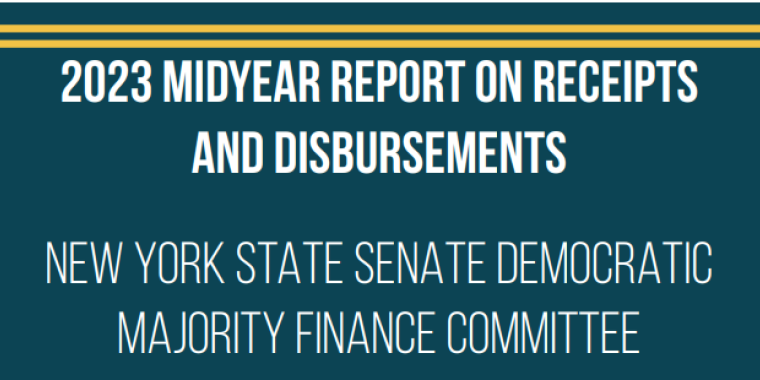
Testimony Before The New York City Planning Commission Regarding The “Hudson Yards” Plan on September 24th, 2004
Liz Krueger
July 12, 2010
My name is Liz Krueger and I represent the 26th Senate District, which includes the Upper East Side, East Midtown and Midtown areas of Manhattan. I am grateful to the City Planning Commission for the opportunity to testify today.
The most impressive aspect of the Hudson Yards proposal is this Administration’s attempt to design a comprehensive plan for the Far West Side. This is precisely why it is so unfortunate that the public review process for the project is fragmented and inadequate. We are being asked to evaluate the merits of a land-use action that would serve as a funding mechanism for components of the project where there may be no opportunity for public review. The proposals for the construction of a football stadium and Javits expansion should be subject to the City’s Uniform Land Use Review Procedure (ULURP), and should not be reviewed separately from the actions before us today. These procedural mistakes undermine the integrity of the entire public review.
It makes little sense to discuss the Hudson Yards plan without discussing the proposal for a football stadium over the Western Rail Yards. I believe that the stadium would be a colossal mistake. It contradicts both sound planning principles and rational economic development policy. My district extends to 8th Avenue and as far south as 19th Street, and I can say with confidence that a stadium surrounded by excessive commercial development would be extremely detrimental to contiguous residential neighborhoods and to the Theater District. Furthermore, the 30 story, 3-square block stadium and the dense development planned for Eleventh Avenue would block access to the waterfront that we have just begun to reclaim.
From an economic development perspective, the problems raised by this project have citywide repercussions. The total cost to taxpayers may approach $1.2 billion. Leading economists characterize public subsidies for stadiums as a transfer of funds from taxpayers to a small number of team owners, players, and fans. It is painfully obvious that dedicating prime real estate to a land-intensive stadium will physically deter economic development and undermine public investment on the waterfront. Using the MTA’s six acres of valuable riverfront property for a stadium, instead of for the highest value and best use, would result in a loss of MTA revenue at the expense of affordable mass transit and capital projects such as the Second Avenue Subway.
The Governor’s claim that the stadium is needed for the Javits expansion is disingenuous. The needs of the Javits Center should be our first priority in deciding how to expand it, and there are many reasons to believe that the proposed stadium actually imperils the Javits plan and would eventually interfere with its operation.
As for the rest of the development plan, I am concerned that the revenue generating function of the rezoning action seems to have taken precedence over sensible planning. It is clear that this district should no longer be zoned for low-density industrial use, and I agree with the Department of City Planning’s objective of planning for a multi-use, transit-oriented neighborhood. However, the plan is far too focused on the creation of office space at a density that is far higher than any other commercial district in the City. And with overly restrictive clauses that mandate commercial development in certain areas, it is done at the expense of housing. As the Ranking Democrat on the State Senate’s Housing Committee, I am most troubled that this redevelopment plan neglects the City’s greatest need—affordable housing for low and moderate income people. There are currently no guarantees that any of the housing created would be permanently affordable. With all of the innovative zoning proposals that are part of this plan, I am disappointed that the DCP has not sought to incorporate new incentives and mechanisms to foster development of housing for a range of income groups. I believe this would result in a new, vibrant neighborhood that would itself be an economic engine for the City.
The redevelopment plan does not reflect the values of New Yorkers, who unequivocally give priority to education, health care, and housing over speculative mega-projects with questionable potential for public benefit. It behooves the City Planning Commission to take a close look at alternative visions, like the plan proposed by the Hell’s Kitchen/Hudson Yards Alliance, and the principles to guide development in the area set forth by the Regional Plan Association.
Once again, thank you for the opportunity to testify.
Share this Article or Press Release
Newsroom
Go to NewsroomSenator Krueger's 2023 Virtual Senior Resource Fair Part 2
November 6, 2023

2023 Midyear Report on Receipts and Disbursements
November 6, 2023

Senator Krueger's 2023 Virtual Senior Resource Fair Part 1
November 3, 2023

Sen. Krueger's Message on the Tragedy Unfolding in Israel
October 10, 2023
